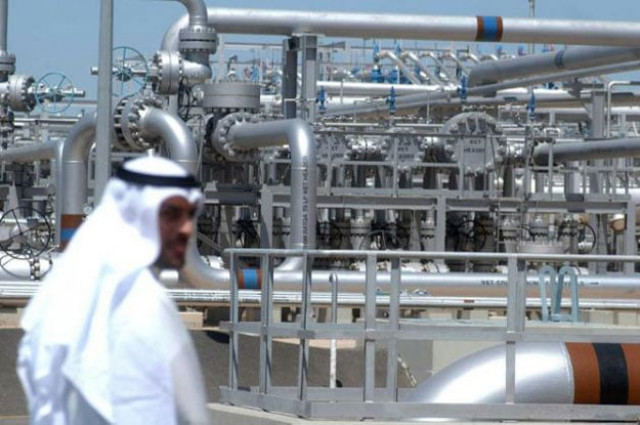Kuwait emir urges reforms as income drops 60 percent
Oil income accounted for about 94 percent of Kuwait's revenues during the past 16 years

Oil prices have lost around 60 percent of their value since June 2014, hitting the coffers of energy-dependent countries like Kuwait PHOTO: AFP
Addressing parliament at the beginning of its new term, Sheikh Sabah al Ahmad Al Sabah urged citizens to understand the new measures.
Saudi Arabia may run out of financial assets in 5 years, warns IMF
"The decline in global oil prices has caused state revenues to drop by around 60 percent while spending remained without any reduction leading to a huge deficit," the emir told lawmakers.
He called for "speedy actions to adopt serious and fair measures to complete economic reforms... and reduce public expenditures."
"Any delay would only increase the budget deficit and make the cost (of reforms) higher," the emir said.
Oil prices have lost around 60 percent of their value since June 2014, hitting the coffers of energy-dependent countries like Kuwait.
Oil income accounted for about 94 percent of Kuwait's revenues during the past 16 years, when the emirate posted a budget surplus and piled up massive fiscal reserves of around $600 billion (543 billion euros).
Kuwait says no plan for oil summit to boost prices
The reserves are invested mostly abroad by the country's sovereign wealth fund.
The International Monetary Fund said in a report last week that under existing conditions, the reserves would be enough to last Kuwait for the next 23 years.
But Sheikh Sabah said the government should avoid tapping the sovereign fund to finance the budget shortfall.
Based on figures published by the finance ministry, Kuwait's revenues in the first half of 2015 hit 8.34 billion dinars ($27.6 billion), way below the 15.1 billion dinars of income in the same period of last fiscal year.
The revenues, however, amounted to more than half of the 12.2 billion dinars income projected for the whole year.
At the start of 2015, Kuwait lifted subsidies on diesel, kerosene and aviation fuel. It is considering similar measures for electricity, water and petrol.
Public spending has risen more than three-fold in Kuwait over the past seven years, with the overwhelming majority of the increase going to wages and subsidies.
The tiny emirate has a native population of 1.3 million and is also home to about 2.9 million foreigners.



















COMMENTS
Comments are moderated and generally will be posted if they are on-topic and not abusive.
For more information, please see our Comments FAQ